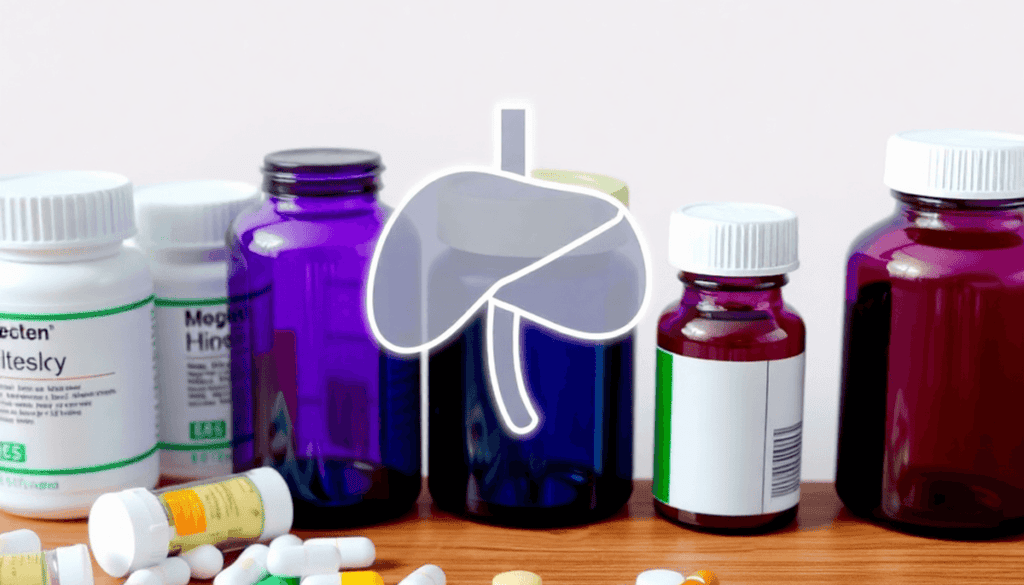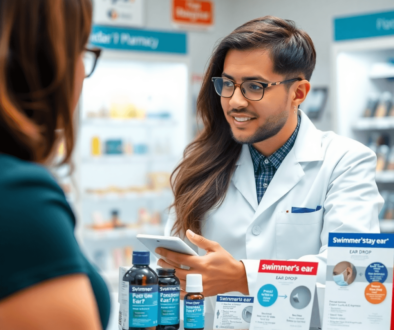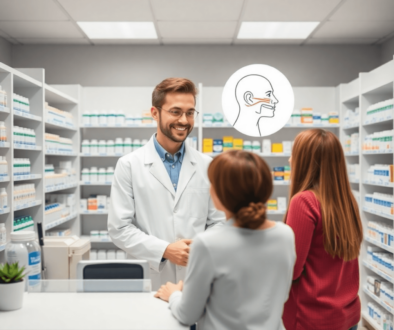Common Drug Interactions and How to Avoid Them
If you’re juggling multiple medications, supplements, or even certain foods, understanding common drug interactions isn’t just smart—it’s essential. This article, Common Drug Interactions and How to Avoid Them, dives into the nitty-gritty of how different substances can clash inside your body, sometimes with serious consequences for your medication safety.
What are common drug interactions? Simply put, they occur when one drug changes the way another works—either boosting side effects or dulling the intended effect. Think of it as drugs playing tug-of-war inside your system. Some interactions sneak up quietly, while others demand immediate attention.
By reading on, you’ll learn to spot these interactions before they cause trouble. We’ll break down how drugs team up (or fight), which combos to watch out for, and practical tips to keep your meds working safely and effectively.
Understanding Drug Interactions
When you take a medication, your body doesn’t just accept it without any reaction. Instead, it actively processes the drug through a process called pharmacokinetics, which involves absorption, distribution, metabolism, and elimination. The liver plays a crucial role in this process, as it contains enzymes that break down medications so they can either take effect or be removed from your system.
Two Main Ways Enzymes Affect Drug Interactions
There are two key ways in which enzymes can influence drug interactions:
- Enzyme Inhibition: Some drugs have the ability to slow down the enzymes responsible for metabolizing other drugs. For instance, certain antibiotics can interfere with the action of blood thinners by inhibiting their breakdown. As a result, the blood thinner remains in your body for a longer period of time and at higher concentrations than intended, which increases the risk of bleeding. This phenomenon is known as enzyme inhibition and it disrupts the normal metabolism of drugs.
- Enzyme Induction: On the other hand, there are also drugs that can speed up the activity of these enzymes, leading to faster metabolism. This is similar to how caffeine can energize a mechanic and make them work more quickly. For example, certain medications have been found to enhance the breakdown of contraceptives by inducing their metabolism. When this happens, the levels of contraceptives in your bloodstream decrease due to the accelerated processing, which ultimately reduces their effectiveness—an outcome that should be avoided if you’re not intending to have an unplanned pregnancy.
Why Understanding Enzyme Dynamics Matters
By comprehending these enzyme-related mechanisms, we can gain insight into why combining two seemingly harmless medications might result in unexpected—and sometimes harmful—consequences. The enzymes present in your liver act as gatekeepers that determine how rapidly or slowly each drug is metabolized, thereby directly impacting its safety and efficacy.
Healthcare professionals can anticipate potential interactions before they occur by understanding whether a particular drug inhibits or induces these enzymes. This knowledge allows them to effectively manage complex traffic systems within your body where timing and flow play critical roles—often without you even realizing it.
Types of Drug Interactions
Drug interactions come in different types, each with its own way of affecting your medication. Here’s a breakdown of the main types:
1. Drug-Drug Interaction
This is the most common type where one medication changes how another works. It can increase its effects, decrease them, or cause new side effects. For example, some antibiotics slow down enzymes that break down blood thinners, increasing the risk of bleeding. On the other hand, certain drugs can speed up metabolism, making contraceptives less effective.
2. Drug-Nutrient Interaction
Not just medications can have an impact; what you eat or drink matters too. Grapefruit juice famously blocks enzymes that process statins, potentially leading to dangerously high drug levels. Supplements like fish oil might enhance the effects of blood thinners, increasing the chances of bleeding.
3. Individual Variability
Your body isn’t the same as everyone else’s. Genetic factors affect liver enzymes that handle drug metabolism, meaning two people on the same medications can have very different responses. Additionally, chronic conditions like liver or kidney disease can make drug clearance even more complicated.
Each type affects medication outcomes in unique ways—some cause side effects, others reduce effectiveness—making it crucial to understand what’s happening behind the scenes of your treatment plan.
Common Drug-Drug Interactions to Watch For
Certain drug pairs deserve a spot on your radar because their interaction can cause serious issues. Here’s the lowdown on some usual suspects in the world of Common Drug Interactions and How to Avoid Them:
1. Blood thinners + antibiotics
Some antibiotics, like ciprofloxacin or metronidazole, inhibit enzymes that break down blood thinners such as warfarin. The result? Blood thinners stick around longer, upping the risk of bruising and bleeding. If you’re on blood thinners, your pharmacist should be your new best friend during any antibiotic course.
2. Contraceptives + enzyme inducers
Certain drugs speed up liver enzymes that metabolize hormonal contraceptives (think rifampin or some anti-seizure meds). Faster metabolism means less contraceptive hormone in your system—leading to an increased chance of unintended pregnancy. No one wants a surprise like that, so always mention your birth control method when getting new prescriptions.
3. Statins interactions
Statins, used to lower cholesterol, can have their levels dangerously boosted by drugs inhibiting the same liver enzymes (CYP3A4 inhibitors like some antifungals or antibiotics). This can lead to muscle pain or even more severe muscle damage. Keep an eye on any new symptoms if you’re mixing these medications.
Recognizing these common drug-drug interactions helps you dodge unwanted side effects and keep your medications working as intended.
Drug-Nutrient Interactions and Their Effects
Some foods don’t just nourish you—they can throw a wrench in how your meds work. Take grapefruit juice interactions, for example. Grapefruit contains compounds that block enzymes in the liver (especially CYP3A4) responsible for breaking down many drugs, including statins used to lower cholesterol. This means higher drug levels in your bloodstream, upping the risk of side effects like muscle pain or liver damage.
Supplements aren’t innocent bystanders either. Fish oil is popular for heart health but can stir the pot when mixed with blood thinners like warfarin. Both thin your blood, which sounds great until it ramps up bleeding risk. Other supplements—like St. John’s Wort—can speed up metabolism enzymes, making some medications less effective.
A quick checklist to keep these interactions in check:
- Avoid grapefruit juice if you’re on meds metabolized by CYP3A4 enzymes.
- Tell your healthcare provider about every supplement and vitamin you take.
- Use supplements cautiously, especially if you’re on blood thinners or other critical medications.
- Ask a pharmacist before adding any new supplement to your regimen.
Being savvy about supplements and medications can save you from unexpected side effects or reduced treatment effectiveness. Your body’s chemistry isn’t just about pills; what you eat and swallow matters just as much.
Individual Factors Affecting Drug Interactions
Not all drug interactions are the same—your unique biology plays a starring role. Genetic variations in liver enzymes, particularly those in the cytochrome P450 family, can speed up or slow down how your body processes medications. Imagine two people taking the same dose of a drug: one might break it down quickly, reducing effectiveness, while the other metabolizes it slowly, leading to potential toxicity.
Liver disease throws another wrench into the mix. Since the liver is the body’s main chemical processing plant, any damage here can reduce enzyme activity. Drugs that normally get cleared efficiently may hang around longer, increasing side effects or toxicity risk.
Kidney disease also matters because kidneys clear many drugs and their metabolites. Impaired kidney function means slower clearance and accumulation of drugs or byproducts that your body would usually flush out without breaking a sweat.
Moreover, other individual health factors such as age, weight, gender, and overall health can also significantly affect drug metabolism and interaction. These factors can influence everything from how a drug is absorbed to how it’s eliminated from your system.
Key points to remember about individual factors:
- Genetic makeup influences how enzymes metabolize drugs—think of it as your personal medication speed dial.
- Liver conditions can drastically reduce drug breakdown, upping the chance of side effects.
- Kidney problems slow drug elimination, causing buildup and potential harm.
- Other health aspects like age or weight can further complicate medication management.
These personal health factors make it crucial to tailor medication choices and dosages—not just what you take but how your body handles it.
Strategies to Avoid Harmful Drug Interactions
Navigating the maze of medications without stepping on interaction landmines requires a mix of vigilance and savvy. Here are some medication adherence tips to keep your drug regimen safe and effective:
1. Keep a single, updated medication list
Include prescription drugs, over-the-counter meds, supplements, and even herbal remedies. Share this list with every healthcare provider you see. Your pharmacist loves this—it’s their secret weapon against hidden interactions.
2. Stick to prescribed doses and schedules
Changing how or when you take your meds without consulting a pro can mess with how drugs interact in your body. Consistency is king here.
3. Be cautious with supplements and “natural” products
Just because it’s sold over the counter doesn’t mean it plays nicely with your medications. Fish oil, St. John’s Wort, and ginkgo biloba have all been caught shaking up drug effects.
4. Watch what you eat and drink
Grapefruit juice isn’t just a breakfast treat; it’s a notorious enzyme inhibitor that can turn certain drugs toxic. Alcohol? It often intensifies side effects or interferes with drug metabolism.
5. Use one pharmacy when possible
Filling all prescriptions at the same place helps pharmacists spot risky combinations before they reach your medicine cabinet.
6. Ask questions—and keep asking
When starting new medications, ask your pharmacist about potential interactions with your current regimen, diet, or lifestyle.
7. Monitor your body’s responses closely
If something feels off—unexpected dizziness, unusual bleeding, or other strange symptoms—don’t shrug it off. Early detection can prevent serious complications.
Mastering these strategies transforms you from a passive pill-popper into an active participant in your medication safety journey. Common Drug Interactions and How to Avoid Them isn’t just a catchy title—it’s the blueprint for smarter medication management.
The Role of Pharmacists in Managing Drug Interactions
Pharmacists play a crucial role in ensuring medication safety by identifying and managing potential drug interactions. Their expertise and knowledge of various medications allow them to assess the compatibility of different drugs and take necessary actions to prevent any adverse effects. This is part of their broader responsibility in ensuring medication safety, which includes monitoring for potential drug interactions.
Identifying and Managing Potential Drug Interactions
One of the primary responsibilities of pharmacists is to review patients’ medication profiles and identify any potential drug interactions. This involves analyzing the prescribed medications, over-the-counter drugs, and herbal supplements that a patient may be taking. By doing so, pharmacists can proactively address any concerns and communicate with healthcare providers if adjustments need to be made.
Pharmacists also play an active role in managing drug interactions by providing counseling to patients. They educate individuals about the importance of disclosing all medications they are using, including non-prescription ones, to avoid any harmful combinations. Additionally, pharmacists may recommend alternative therapies or dosage adjustments when necessary to ensure optimal treatment outcomes.
Seeking Expert Guidance from Trusted Professionals
When it comes to medication safety, seeking expert guidance is essential. Misterpharmacist.com stands out as the only 5-star rated online pharmacy in Toronto, emphasizing the significance of consulting trusted professionals for pharmaceutical care.
Mister Pharmacist offers a wide range of services designed to enhance accessibility to quality healthcare:
- Expert Advice: Their team of licensed pharmacists provides personalized consultations, addressing specific concerns related to medications and potential interactions.
- Convenient Delivery: With their delivery service across the Greater Toronto Area (GTA), patients can conveniently receive their medications at home without any hassle.
- Comprehensive Care: Mister Pharmacist goes beyond just dispensing medications; they prioritize holistic patient care by considering factors such as lifestyle, medical history, and individual preferences.
By leveraging the expertise and services provided by reputable pharmacies like Mister Pharmacist, individuals can ensure safe medication practices and improve their overall health outcomes.
Monitoring and Reporting Unusual Symptoms While On Medications
Importance of closely observing responses to new medications
Keep an eye out for any unexpected changes in how you feel after starting a new medication.
Recognizing signs of adverse reactions or interaction symptoms
Look for symptoms like unusual fatigue, dizziness, skin rashes, or digestive issues that could indicate a negative reaction to your medication regimen.
Remember, your body communicates with you, so listen up! If something feels off, don’t hesitate to reach out to your healthcare team. Reporting any strange symptoms promptly can help catch and address potential drug interactions before they escalate. Your health is a priority, so stay vigilant and proactive when it comes to monitoring how your body responds to medications.



